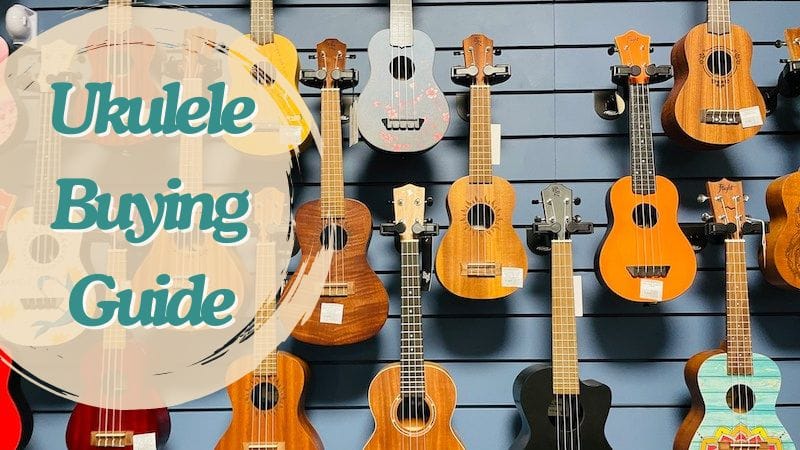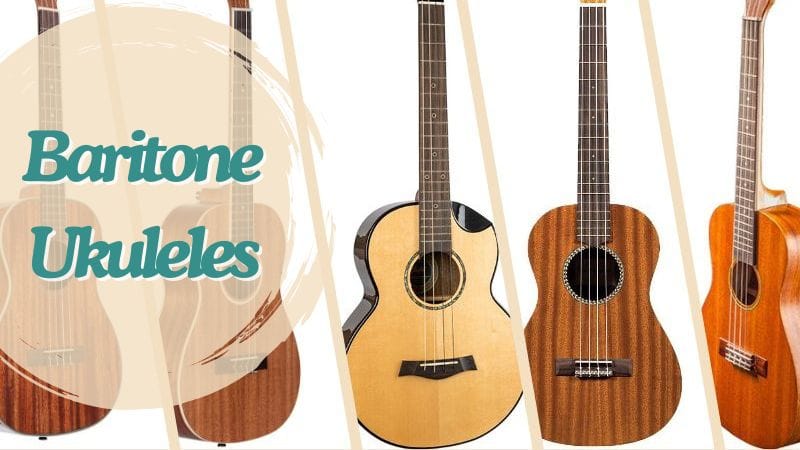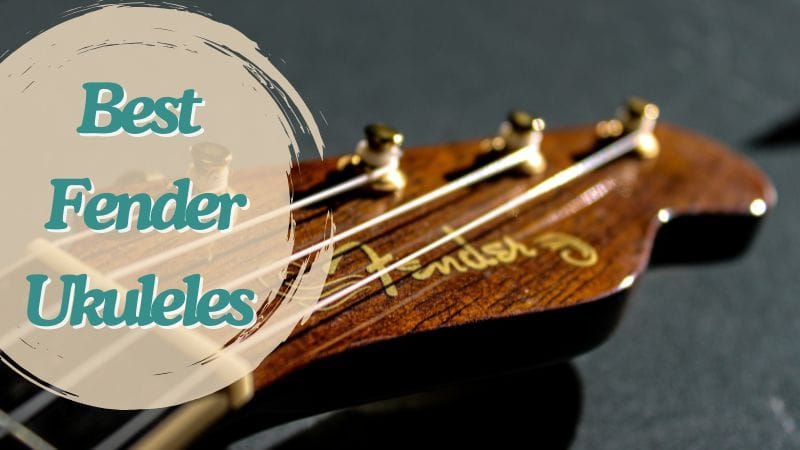Choosing a set of ukulele strings can be daunting for beginners. This article explains the different types of strings and reputable brands to help you find the best set.
Written by Jay Searle / Published June 7, 2024
Last updated: April 26, 2024
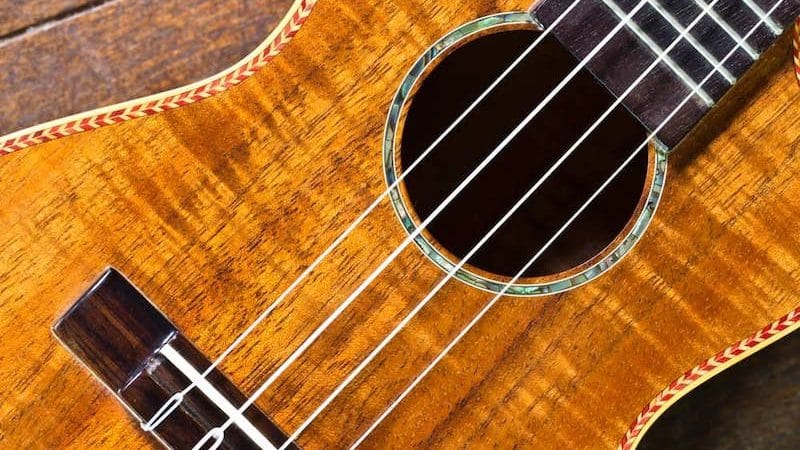
For obvious reasons, the original strings of the ukulele you bought won’t last forever. Even if you rarely play, they’ll eventually lose their brightness, and their tone will become dull or muddy.
Then, there’s the unfortunate event when they break because they are flimsy or just defective to begin with. It could also be that you’ve tuned them way too high, as they can only take a certain amount of strain. Some just give way because they’re already too old, which we hope is not the case.
Whether you’re looking for a set of ukulele replacement strings for the first time or simply want to know what options are available, we’re here to help.
READ MORE: How to tune your ukulele
Things to Consider When Purchasing Ukulele Strings
Our guide on the best ukulele strings will discuss the primary string materials, the most popular uke string-maker brands, and other things you should consider while browsing.
Types & Materials
In modern times, the two most common types of ukulele strings are Nylon and Fluorocarbon. However, older brands often use hybrid materials like the famed Aquila Nylgut (Nylon and Gut).
Nylon is currently the gold standard, even on classical guitars. Nylon strings are usually cheap, and they’re pretty famous for delivering a tone that significantly resembles that of authentic gut strings, which are barely available today.
Fluorocarbon is second in popularity. Although objectively, it’s neither superior nor inferior to nylon. It’s just “different”.
Strings made of this material are denser, tend to provide a bit more volume, and are characterized by a distinctly bright attack. This “brightness” made them less popular because nearly half of all available ukuleles are made of Mahogany, which is as warm as they come.
A handful of somewhat less popular string material types are only offered by a few brands like D’Addario and Aquila. Titanium, graphite, and carbon aren’t as common. However, they provide a unique feel and sound.
So, if you don’t particularly like the tone of your uke, you can change it by trying some of these.
Wound strings feature a core material wrapped in another material (often polymer, copper, or steel). They’re slowly gaining traction and can’t be considered a “material type,” so we thought they deserved a special category.
Consider nylon or steel-wound strings if you love how your chosen strings feel but dislike how they sound. For example, polymer-wound nylon strings have a fuller, rounder tone and are perfect for larger ukulele sizes, while steel-wound metal strings may be a bit more challenging to play, but they’re ultra-sturdy and boast the loudest volume.
String Size
Ukuleles come in different sizes, and so do their strings. In theory, you can make do by ordering a set of strings that are longer than your uke’s scale length, but not the other way around.
Ideally, you should order strings that match the size of your uke. If you’re playing a soprano, look for 20-inch strings, 23-inch strings for concert, 26-inch for tenor, and 30-inch for baritone ukuleles.
Musicians who play sub-soprano ukulele sizes (e.g., sopranino or sopranissimo) may find custom string sets from certain brands. Still, you can use soprano-size strings on smaller ukuleles if your search is unsuccessful.
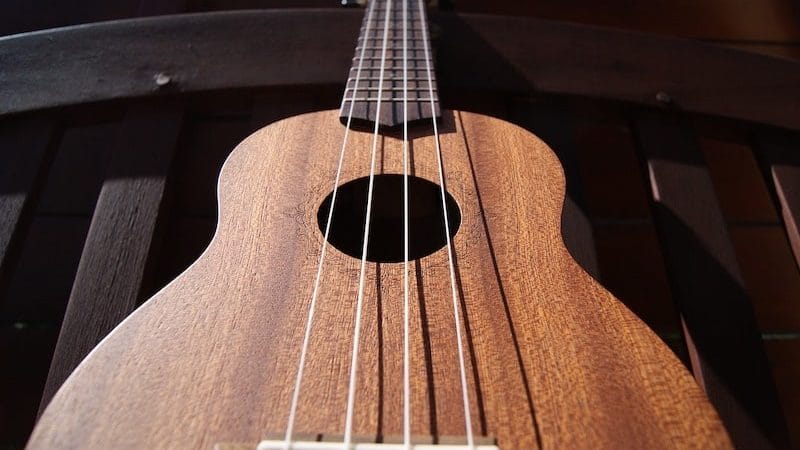
String Order
The “string order” mainly refers to the first “G” string; the strings C, E, and A are always built to produce the same pitch, but you will find sets with a low G and a high g string (lowercase g is deliberate).
The high g is essentially an entire octave above the “standard” G in terms of pitch. The standard tuning for most ukuleles in the smaller sizes includes a high G. Some players who love experimenting with different ukulele tunings may try using a low G, particularly tenor players. However, if you’re looking for basic, standard-issue strings, make sure you’re buying a regular g-C-E-A set.
Special strings exist for different uke sizes. For example, if you’re playing a Baritone, you’ll need large and thick enough strings to accommodate the D-G-B-E tuning.
Brands with the Best Ukulele Strings
Dozens of string-maker brands offer quality uke strings, each with a unique offering. We’ve narrowed the list to four of the most prominent brands when it comes to the best ukulele strings.
Aquila (Aquila Corde Armoniche)
Aquila, the undisputed leader in the string-making space, boasts a diverse selection of “early” and “modern” music strings. They have a bit of everything from gut and synthetic to nylon, fluorocarbon, and hybrid materials.
Aquila’s most popular series of strings is the “Nylgut” line, followed by New Nylgut, and Super Nylgut. These are essentially a perfect blend of nylon and gut materials, offering unparalleled flexibility, a sharp attack, and optimal durability.
D’Addario
D’Addario is famed for having an eclectic, well-rounded catalog of ukulele strings for virtually all uke sizes.
We recommend checking out their selection because D’Addario is among the few string-makers offering sets made of special materials, like Nyl-tech, titanium, and carbon. In addition to these “specialist” string sets, D’Addario sells a broad spectrum of more traditional nylon and fluorocarbon strings for ukuleles.
This brand is perfect for beginners since they’ve categorized their strings according to the tone they produce, from the brightest to the mellowest ones.
Ernie Ball
This heavily acclaimed guitar string maker also produces some of the best ukulele strings, although they don’t offer as many options as Aquila.
They offer two sets of “standard” strings, the “Clear” and the “Black.” They also have wound variants of the same packs with a layered core in the G string.
All Ernie Ball strings are made of premium quality nylon.
Martin
Martin offers standard and “Polygut” ukulele strings, which boast outstanding sturdiness, excellent sonic projection, and a unique tone. They’ve collaborated with Aquila when making their Polygut strings, offering a unique spin on a tried-and-tested formula.
Conclusion
Needless to say, the best options are not necessarily the popular ones that other people prefer. It still boils down to something that suits your playstyle, the specs of your ukulele, and your budget. When choosing the best ukulele strings, be sure to consider all of these aspects before making a decision.

Jay Searle
Website Founder & WriterJay is a self-professed music nerd and ukulele lover. When not working on the website you’ll find him strumming along to his favorite tunes, spending time with his family, or learning to play the piano.

